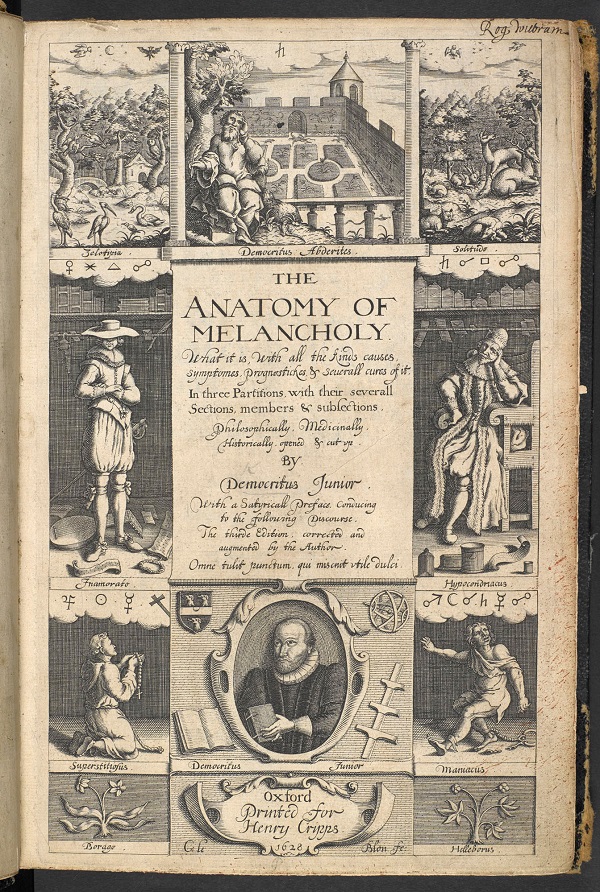FWP:
SETS == WORDPLAY
MADNESS: {14,3}
For general discussion and examples of suvaidā , see {3,2}.
Despite (or perhaps because of) the traditional location of the suvaidā in the very center of the heart, Ghalib enjoys moving it around: in {93,1} there's a suvaidā-e dil-e chashm , in the 'heart of the eye'. And in {96,2}, the ḳhāl-e kunj-e dahan , the 'beauty-spot at the corner of the mouth', has its own suvaidā . In the present verse, as a sort of limit case, every drop of blood in the speaker's body turns into a suvaidā .
How? By first turning into black bile [saudā], as a symptom of madness or melancholia. In the classical Greek medical system, when this humour is dominant one suffers from 'melancholy' (literally, 'black bile'). In Urdu, however, the chief meaning of this (Arabic-derived) saudā is 'madness'. (There's another saudā , from the Persian, that has to do with mercantile activity; that's entirely separate and has no connection with the Arabic sense.)
So once every drop of blood has become 'black' from the madness
of passion, the lover's body is full of
tiny black spots, each of which can be construed as a suvaidā ,
with presumably its accompanying heart. The use of hazāroñ
(rather than merely hazār ) emphasizes the totality
of the transformation. The microscopic scale of the transformation seems to remove any sense of grotesquerie.

Nazm:
Every drop of blood became a suvaidā ; and since the suvaidā is in the heart, then it's as if thanks to the turmoil of madness, I've received all the thousands of hearts. (122)
== Nazm page 122